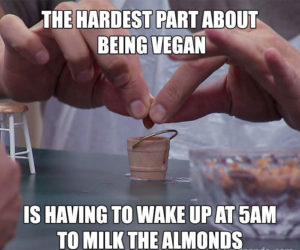Since Netflix documentary The Game Changers premiered last year, not a week has passed where I haven’t had an athlete ask my opinion on it. The program follows a UFC fighter ’embarking on a quest to find the optimal diet for human performance and health’. His conclusion, some would argue conceived before filming even started, is that a meat-free diet is best for performance.

The ethics and environmental impact of meat eating are very important debates that have led me to eat less meat, and a better quality. However this documentary seeks to champion meat-free eating as the best way to optimise health and performance, and here are my thoughts on this subject:
1. Absolutism sells. Anthropological evidence both past and present suggests humans thrive on a huge variety of diets. The same is true of athletes – Novak Djokovic credits his recent successes to a vegan, gluten free diet, but Usain Bolt ate chicken nuggets the night before he broke the 100m world record. Millions of people have watched The Game Changers. If it’s conclusion had been that different diets work for different people, and meat may have a place in that, there would be a lot less discussion, a lot less views and a lot less $$ for Netflix. The middle path is often the way, but it isn’t sexy.
2. When analysing sources of information we must always examine where and who it is coming from. The documentary accurately identifies that many (but certainly not all) studies showing the benefit of meat and dairy to health and performance are funded by….the meat and dairy industries – calling into question the reliability of the research. However, Game Changers is not without it’s own self interests, and by their own rules cannot be taken as the only source of information on nutrition for performance.
3. Story telling is powerful. The human mind is evolved to remember stories over data. We will remember the story of Lewis Hamilton, the vegan motor racing world champion, far longer than the fact that 90% of the last ten world champions were not Vegan. Likewise, the story of three NFL players who gained firmer erections after 24 hours without meat is certainly memorable, but not hard data (pun intended). The documentary contains plenty of anecdotal evidence, and some cherry picked studies. This podcast takes a look at the validity of the evidence provided within the documentary, and some evidence it omitted. In the interests of balance, the host then invited James Wilks, the Producer and UFC fighter, to defend his documentary.
4. Perhaps the benefit of a plant based diet for some athletes is found not through eliminating meat, but increasing consumption of fruit, veg and fibre as part of a more conscious and deliberate diet. – something that omnivores and veggies alike could benefit from.
So do I think a meat-free diet is best for health and performance? For some athletes, maybe, for others, maybe not. Do I think it is worth experimenting with what works for you, and investigating performance nutrition beyond a Hollywood produced TV program? Absolutely.
If you have any thoughts or questions on what has been an incredibly successful and thought provoking documentary, I would love to hear them.
Joe

